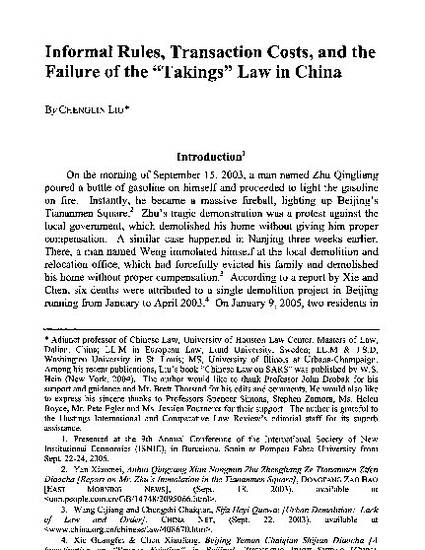
The enforcement of China’s new takings law has failed. In the unbalanced tug-of-war between individual homeowners and deep pocketed developers, the government sided with the latter by changing zoning plans to fit commercial development, authorizing forced evictions, deploying judicial police to execute eviction orders, lowering compensation standards, instructing courts not to hear cases involving demolitions, blocking class actions, and more. Many Chinese scholars argue that lackluster enforcement can be remedied by a well-drafted property code. However, applying the New Institutional Economics’ (NIE) theory on institutions to the enforcement failure associated with the takings law draws attention to informal complaints, which may be the ultimate cause of failure in enforcing China’s takings law.
The rationales for local governments giving commercial development full support is invariably to reduce "transaction costs," increase local GDP, and improve local image. The challenges facing the lawmakers in China are not only how to formulate property rules, but, more importantly, how to respond to and eventually alter the informal constraints that are hostile to weak property owners.
In order to reduce transaction costs in the development process and make property rules effective, the following changes to informal rules are necessary: (1) the government's discretion to alter zoning plans and authorize takings must be restrained; (2) independent appraisal must occur to ensure just compensation; and (3) the state should make efforts to promote judicial independence, which is essential for limiting the opportunities for government to abuse its powers.
